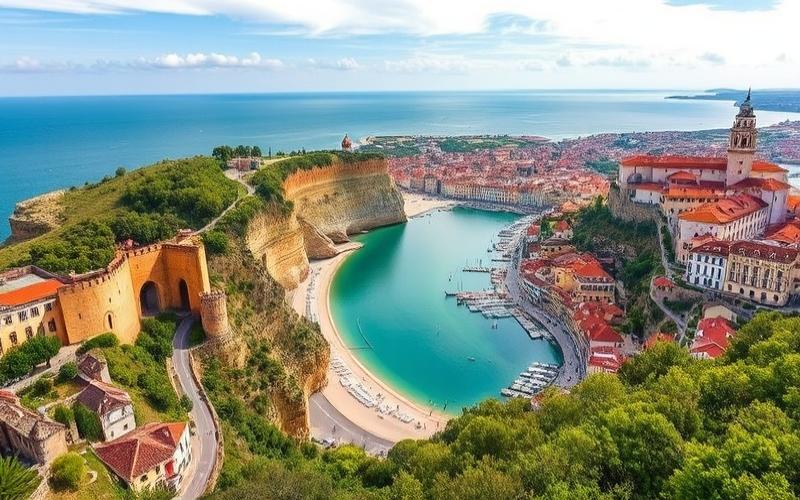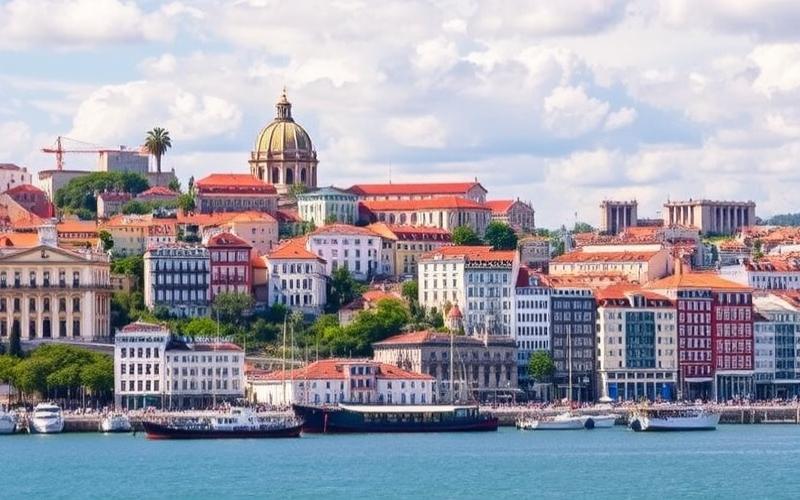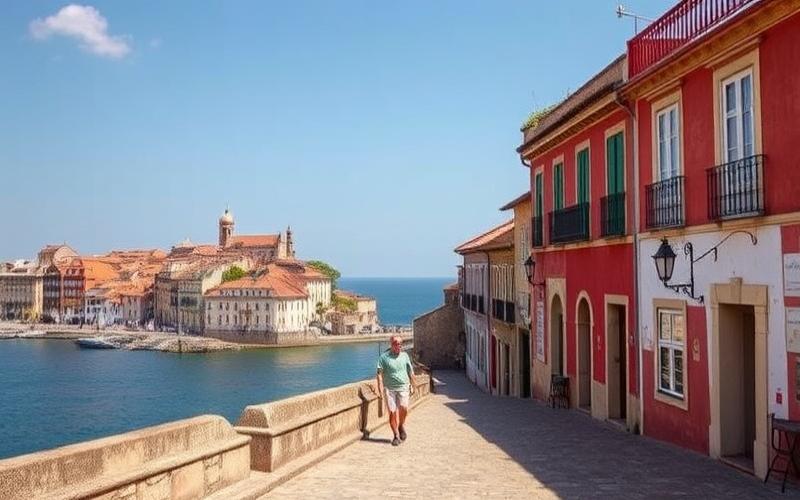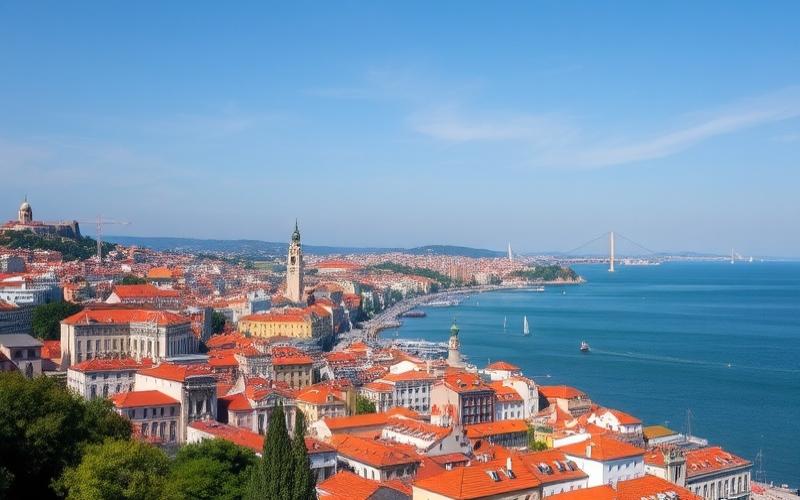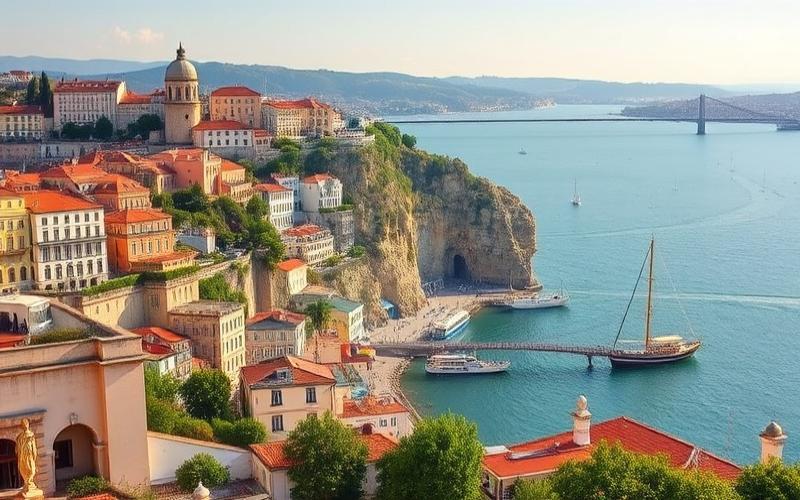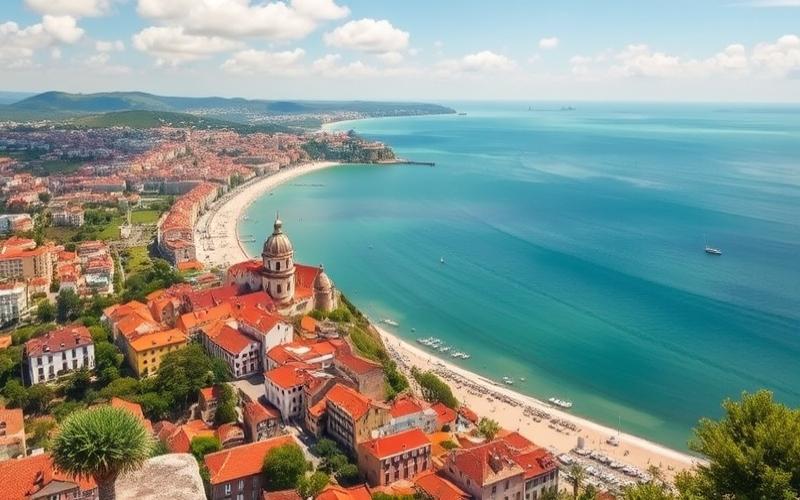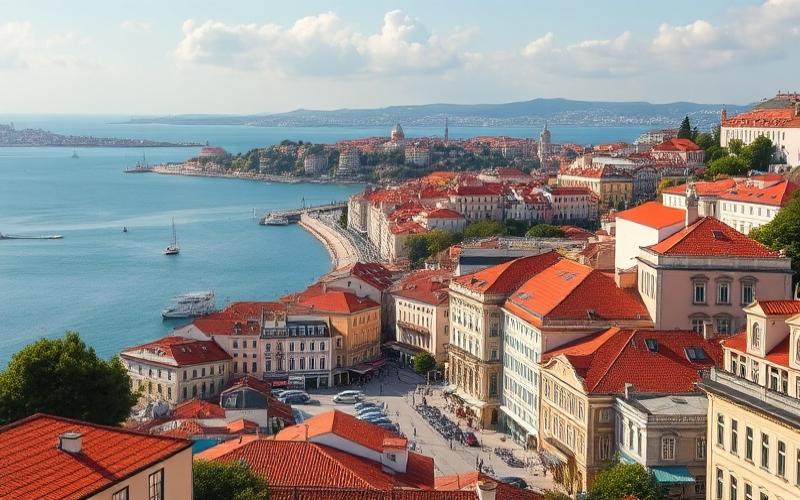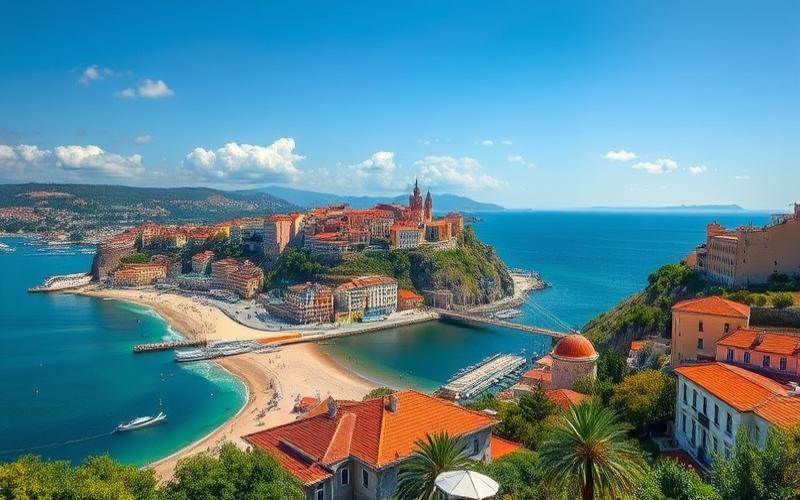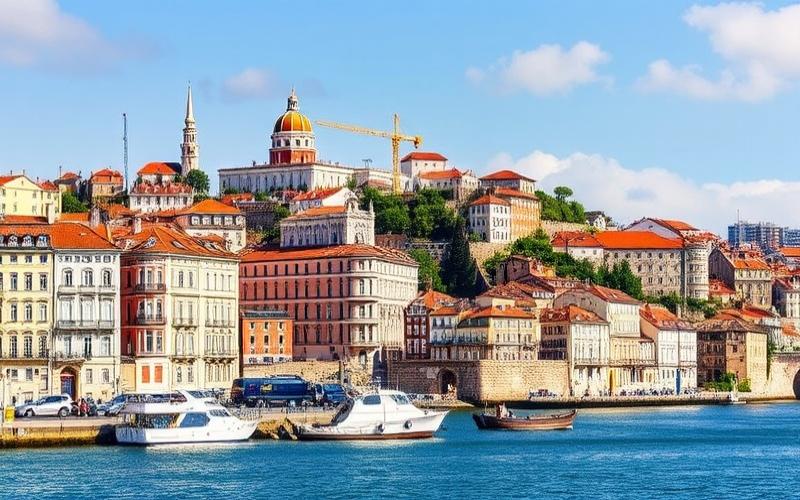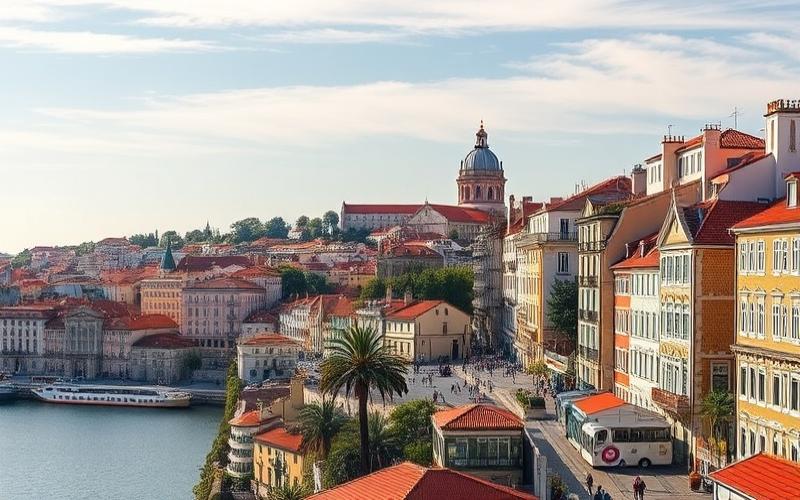
 Published on and written by Cyril Jarnias
Published on and written by Cyril Jarnias
Portugal has become a top destination for many expatriates seeking an enjoyable living environment and affordable cost of living. However, finding the ideal housing in this sunny country can prove to be quite challenging. Whether you’re looking for an apartment in the heart of Lisbon or a peaceful house in the Algarve, this article will guide you through the essential steps to find that perfect gem. Discover our expert advice, tips for optimizing your budget, and our selection of the most sought-after neighborhoods among expatriates.
The Secrets to Finding Your Dream Home in Portugal
Finding housing in Portugal might seem intimidating at first, but with the right strategies, you’ll quickly feel at home in this warm country. Here are some tips and tricks to facilitate your search:
Plan Ahead for Your Search
The key to success lies in planning ahead. The Portuguese real estate market is dynamic, especially in major cities like Lisbon and Porto. Therefore, it’s crucial to start your search several months before your planned move. Ideally, plan at least 3 to 6 months in advance to have time to explore all options and find housing that perfectly matches your expectations.
Utilize Online Resources
The internet is your best ally in your housing quest. Specialized websites for Portuguese real estate like Idealista, OLX, or Imovirtual are essential. These platforms will give you an overview of the market and current prices. Don’t hesitate to create alerts to be notified as soon as a listing matching your criteria is posted.
Hire a Local Real Estate Agent
Although it may represent an additional cost, hiring a local real estate agent can be an excellent investment. Agents know the market perfectly, can give you access to exclusive offers, and help you navigate Portuguese administrative subtleties. Preferably choose an agent who speaks your language to facilitate communication.
Explore Facebook Groups and Expatriate Networks
Social networks, particularly Facebook, are full of groups dedicated to expatriates in Portugal. These communities are a goldmine of information and can connect you directly with property owners or other expatriates looking for roommates. It’s also an excellent way to get practical advice and experience feedback.
Opt for Temporary Housing Upon Arrival
It might be wise to start with short-term rental upon your arrival in Portugal. This will allow you to explore different neighborhoods, familiarize yourself with the city, and visit housing in person before committing long-term. Platforms like Airbnb or Spotahome offer numerous options for stays ranging from a few weeks to a few months.
Prepare a Strong Application
The rental market can be competitive, especially in sought-after areas. Prepare a complete application including your proof of income, professional references, and a cover letter explaining your project in Portugal. Having a well-prepared application will give you a definite advantage with property owners.
Good to Know:
In Portugal, it’s common for landlords to request up to three months’ rent as a security deposit. Make sure you have this amount available before starting your search.
Housing Budget in Portugal: How Much to Plan for Comfortable Living?
Housing costs in Portugal vary considerably by region and city. Although the country is known for its affordable cost of living, real estate prices have seen a significant increase in recent years, especially in major cities and tourist areas. Here’s an overview of budgets to plan for according to different housing options:
Apartment Rental
Rental prices differ greatly between the capital and provincial cities. In Lisbon, the median rental cost reached €16.3 per square meter in July 2024, which is significantly higher than the national average. Here’s an overview of average prices for different types of housing:
– Studio: approximately €815 per month – T2 Apartment (2 bedrooms): approximately €1,140 per month – T3 Apartment (3 bedrooms): approximately €1,630 per month
It’s important to note that these prices are averages and can vary considerably depending on the neighborhood and property condition. In cities like Porto or Coimbra, rents are generally 20 to 30% lower than in Lisbon.
Property Purchase
If you’re considering buying property in Portugal, prices per square meter also vary by region. In the third quarter of 2024, the median price of a home in Portugal reached €1,819/m². However, this figure hides significant disparities:
– Lisbon: €4,279/m² – Cascais: €3,881/m² – Porto: €2,916/m² – Algarve: prices range between €2,500 and €3,500/m² depending on the city
Utilities and Additional Costs
Don’t forget to include recurring expenses such as electricity, water, gas, and internet in your budget. On average, these utilities can represent between €100 and €200 per month for a medium-sized apartment.
Optimizing Your Housing Budget
To reduce your housing expenses, here are some effective strategies:
– Roommate: Sharing an apartment can significantly reduce your costs, especially in major cities. – Outlying Neighborhoods: Opting for less central areas but well-served by public transportation can save you on rent. – Negotiation: Don’t hesitate to negotiate the rent, especially for long-term leases. – Renovation: Some landlords may be open to reducing rent in exchange for minor renovation work.
Good to Know:
Portugal offers interesting tax incentives for expatriates, such as the Non-Habitual Resident (NHR) status. Inquire about these benefits that can have a positive impact on your overall budget.
Expatriates’ Favorite Neighborhoods: Where to Settle for Successful Integration?
The choice of neighborhood is crucial for your expatriate experience in Portugal. Each city has its own sought-after areas, offering a balance between quality of life, amenities, and international community. Here’s an overview of the most appreciated neighborhoods among expatriates in major Portuguese cities:
Lisbon: The Capital’s Vibrancy
Lisbon, with its historic charm and cultural dynamism, attracts many expatriates. Here are the most popular neighborhoods:
– Príncipe Real: Trendy and cosmopolitan neighborhood, ideal for young professionals and families. You’ll find many green spaces, trendy shops, and vibrant nightlife.
– Chiado: Cultural heart of Lisbon, this elegant neighborhood is perfect for art and shopping enthusiasts. Apartments here are often spacious and bright, but prices are among the highest in the city.
– Estrela: A quiet residential neighborhood, appreciated by expatriate families for its international schools and large park. The atmosphere is more tranquil while remaining close to downtown.
Porto: The Charm of the North
Porto, Portugal’s second city, is attracting more and more expatriates with its more relaxed atmosphere and more affordable prices than Lisbon.
– Foz do Douro: Located by the sea, this chic neighborhood offers exceptional quality of life with its beaches, high-end restaurants, and beautiful homes.
– Cedofeita: Central and lively neighborhood, popular among young expatriates and students. You’ll find many cafes, bars, and art galleries.
– Boavista: Modern residential area, appreciated for its green spaces and transportation connections. Ideal for families and professionals.
Algarve: The Retirees’ Paradise
The Algarve, with its mild climate and magnificent beaches, is particularly popular among retired expatriates.
– Lagos: Historic city offering a good balance between local life and expatriate amenities. Its lively downtown and beautiful beaches make it a popular choice.
– Tavira: For those seeking a more authentic and less touristy atmosphere, Tavira offers traditional charm with its cobblestone streets and typical architecture.
Coimbra: The University City
Coimbra, famous for its historic university, is attracting more and more expatriates seeking a rich cultural life in a human-scale city.
– Alta: The historic neighborhood, located on a hill, offers a breathtaking view of the city and hosts many international students and professors.
– Santa Clara: On the other side of the Mondego River, this more residential neighborhood offers a peaceful living environment while remaining close to downtown.
Factors to Consider When Choosing Your Neighborhood
During your search, take the following elements into account:
– Proximity to Public Transportation: Ensure you have easy access to buses, subways, or trains according to your needs. – Presence of International Schools: Essential if you have children. – Access to Healthcare Services: Check for nearby hospitals or clinics. – Community Life: Some neighborhoods have very active expatriate associations, which can facilitate your integration. – Safety: Although Portugal is generally a safe country, some neighborhoods may be calmer than others.
Good to Know:
Before deciding, spend time in different neighborhoods at different times of the day to get an accurate idea of the atmosphere and lifestyle.
Conclusion: Your New Life in Portugal Starts Here
Finding the ideal housing in Portugal is a crucial step for a successful expatriation. Whether you choose Lisbon’s vibrancy, Porto’s charm, the Algarve’s gentle way of life, or Coimbra’s student atmosphere, Portugal offers a diversity of choices for all tastes and budgets.
Remember that patience and flexibility are your best allies in this search. The Portuguese real estate market can be competitive, but with the right strategies and a bit of perseverance, you’ll undoubtedly find the housing that will become your new home.
Finally, keep in mind that your integration isn’t limited to your housing. Get involved in local life, learn Portuguese, and open yourself to the culture of this welcoming country. Your expatriate experience in Portugal will only be richer and more fulfilling.
Disclaimer: The information provided on this website is for informational purposes only and does not constitute financial, legal, or professional advice. We encourage you to consult qualified experts before making any investment, real estate, or expatriation decisions. Although we strive to maintain up-to-date and accurate information, we do not guarantee the completeness, accuracy, or timeliness of the proposed content. As investment and expatriation involve risks, we disclaim any liability for potential losses or damages arising from the use of this site. Your use of this site confirms your acceptance of these terms and your understanding of the associated risks.



